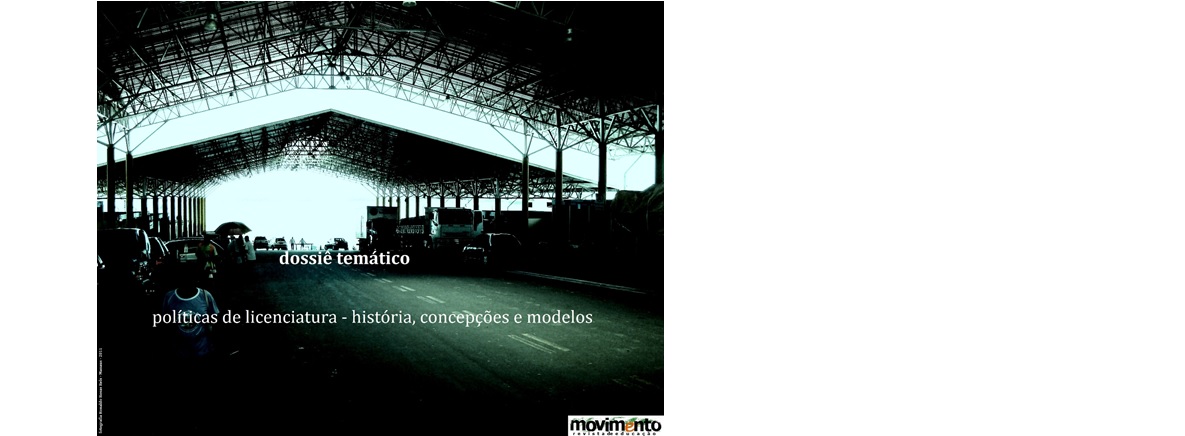A UNESCO e as políticas de formação para o trabalho docente: aproximações entre 1966 e 1996
DOI:
https://doi.org/10.22409/mov.v0i2.245Resumo
Objetivamos compreender as políticas de formação para o trabalho docente da UNESCO que, por meio do discurso da educação ao longo da vida, fragmenta e aligeira a formação de professores da educação básica, em nível superior. Isso se dá por meio da educação a distância, possibilitada pelas Tecnologias da Informação e da Comunicação. Tais medidas, não têm sido suficientes para garantir uma formação que contribua para mudar o quadro deplorável da educação básica no Brasil. Concluímos que a alternativa seria a formação para a emancipação humana, com vistas à construção de outra sociabilidade.
Palavras-chave: Formação de professores; Política educacional; UNESCO.
We aim to understand the education policies for UNESCO teaching work that through the discourse of education throughout life, fragments and lessens the teacher's training of basic education, into higher education. This is done throught distance education, enabled by Information and Communication Technologies. Such guidelines, have not been sufficient to ensure a training which helps to change the deplorable picture of basic education in Brazil. We conclude that the alternative would be the training for human emancipation, in order to build another sociability.
Keywords: Teacher's training; Educational policy; UNESCO.
Downloads
Downloads
Publicado
Edição
Seção
Licença
- Autores mantém os direitos autorais e concedem à revista o direito de primeira publicação, com o trabalho simultaneamente licenciado sob a Creative Commons - Atribuição-NãoComercial 4.0 Internacional. que permite o compartilhamento do trabalho com reconhecimento da autoria e publicação inicial nesta revista.
- Autores têm autorização para assumir contratos adicionais separadamente, para distribuição não-exclusiva da versão do trabalho publicada nesta revista (ex.: publicar em repositório institucional ou como capítulo de livro), com reconhecimento de autoria e publicação inicial nesta revista.
- Autores têm permissão e são estimulados a publicar e distribuir seu trabalho online (ex.: em repositórios institucionais ou na sua página pessoal) depois da publicação nesta revista.
- As fontes indicadas, as ideias e as opiniões expressas são de exclusiva responsabilidade dos autores, não refletindo, necessariamente, as opiniões da revista.

